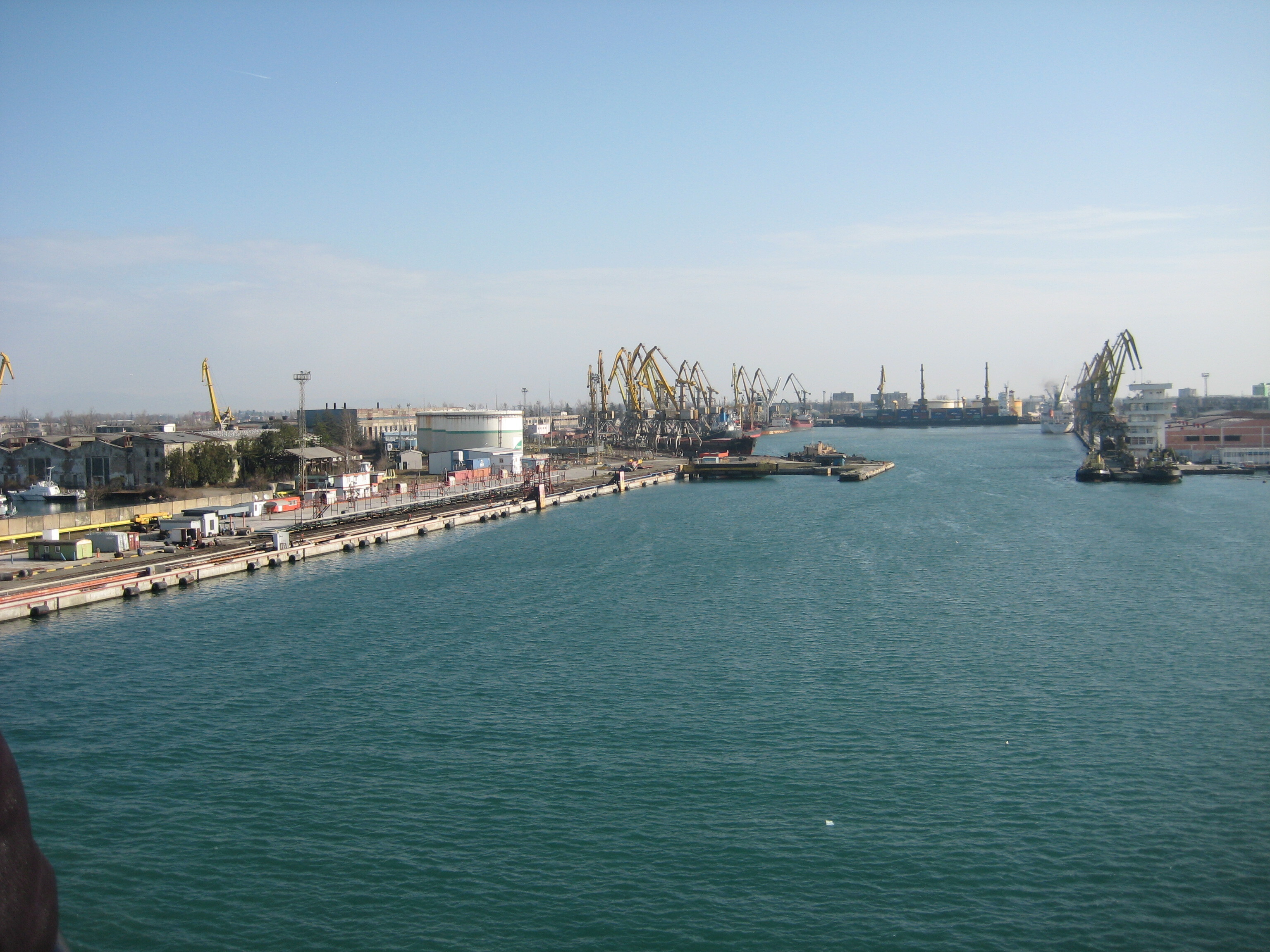Moving With A Vehicle To Ghana: Duty-Free Eligibility & Customs Checklist
Moving with a vehicle to Ghana involves navigating complex import regulations designed to manage vehicle imports, protect consumers, and ensure environmental standards. Understanding duty-free eligibility criteria and maintaining a comprehensive customs checklist are essential for individuals relocating to Ghana with their personal vehicles.
Ghana's automotive import regulations have evolved significantly, with increasingly sophisticated requirements including the Ghana Conformity Assessment Program (G-CAP), mandatory DVLA technical inspections, and specific documentation for duty-free personal vehicle imports. For individuals qualifying for duty-free importation, proper preparation can result in significant savings and streamlined clearance procedures.
Understanding Duty-Free Eligibility for Personal Vehicle Imports
Primary Eligibility Requirements
Ghana's customs regulations provide duty-free vehicle import privileges for specific categories of individuals relocating to the country. These provisions are designed to facilitate legitimate personal relocations while preventing abuse of tax exemption systems.
Core Eligibility Criteria:
-
Continuous residence abroad: Must have lived outside Ghana for a minimum of 12 consecutive months
-
Personal relocation purpose: Vehicle must be imported as part of legitimate household goods and personal effects
-
Prior ownership and use: Vehicle must have been owned and actively used by the individual while residing abroad
-
Personal use limitation: Vehicle must be for personal transportation, not commercial purposes
-
One-time benefit: Duty-free importation privilege typically applies once per individual
Age and Condition Restrictions:
-
10-year age limit: Only vehicles manufactured within the last 10 years qualify for duty-free treatment
-
Left-hand drive requirement: Right-hand drive vehicles are prohibited from import
-
Operational condition: Vehicle must be in working condition and roadworthy
-
Environmental standards: Must meet Ghana's emission and environmental compliance requirements
Documentation Requirements for Duty-Free Status
Residency Proof Documentation:
-
Valid Ghanaian passport: Current passport with entry stamps showing continuous absence
-
Foreign residence documentation: Work permits, visas, or residency certificates from country of residence
-
Employment verification: Letters from foreign employers confirming employment duration and location
-
Utility bills or lease agreements: Proof of actual residence at foreign address for required period
Vehicle Ownership Documentation:
-
Original vehicle title: Clear title showing ownership in applicant's name
-
Foreign registration certificate: Current registration from country of residence
-
Purchase documentation: Original bill of sale or financing agreements
-
Insurance records: Foreign insurance policies proving vehicle use abroad
-
Service records: Maintenance documentation demonstrating active vehicle use
Relocation Verification:
-
Employment in Ghana: Job offer letter or employment contract in Ghana
-
Family reunification: Documentation proving family connections requiring relocation
-
Educational purposes: Acceptance letters from Ghanaian educational institutions
-
Business establishment: Evidence of legitimate business establishment in Ghana
Comprehensive Customs Clearance Checklist
Pre-Shipment Documentation Preparation
Essential Shipping Documents:
-
Original Bill of Lading: Maritime shipping document proving cargo ownership and shipment details
-
Commercial Invoice: Detailed invoice showing vehicle value, specifications, and transaction information
-
Packing List: Comprehensive inventory of vehicle and any accompanying personal items
-
Export Customs Clearance: Proof of proper export procedures from origin country
-
Protection Certificate: Marine cargo protection covering international transit
Ghana-Specific Import Documents:
-
Import Declaration Form (IDF): Official Ghana customs import declaration
-
Taxpayer Identification Number (TIN): Required for all import transactions
-
Ghana Conformity Assessment Program (G-CAP) Certificate: Mandatory pre-shipment inspection documentation
-
Duty-Free Application: Formal application for customs duty exemption with supporting documentation
-
Personal Effects Declaration: Comprehensive list of personal belongings accompanying vehicle
G-CAP Compliance Requirements
Mandatory Pre-Shipment Inspection:
The Ghana Conformity Assessment Program requires comprehensive vehicle inspection before shipping, conducted by approved agencies such as Bureau Veritas or SGS.
G-CAP Inspection Components:
-
Roadworthiness assessment: Verification of vehicle safety and operational condition
-
Emission standards compliance: Environmental impact evaluation and certification
-
Product conformity certification: Confirmation that vehicle meets Ghanaian technical standards
-
Documentation verification: Cross-reference of vehicle specifications with import documentation
-
Safety system evaluation: Assessment of critical safety components and features
G-CAP Certification Process:
-
Inspection scheduling: Coordination with approved inspection agency before shipment
-
Vehicle preparation: Ensuring vehicle is clean, accessible, and properly documented
-
Inspector cooperation: Providing full access to vehicle systems and documentation
-
Certificate issuance: Receiving official G-CAP certification for customs presentation
-
Validity period: Understanding certificate validity and any renewal requirements
Customs Clearance Process at Tema Port
Arrival Notification and Documentation Submission:
Upon vehicle arrival at Tema Port, immediate action is required to begin customs clearance procedures.
Primary Customs Processing:
-
Document submission: Presentation of complete documentation package to customs officials
-
Duty assessment: Official evaluation of duty liability and exemption eligibility
-
Physical inspection: Customs examination of vehicle condition and specifications
-
Value verification: Confirmation of declared vehicle value and import pricing
-
Duty-free approval: Official authorization of tax exemption status
Payment and Fee Structure:
Even duty-free imports face certain mandatory fees and processing charges:
-
Port handling fees: Tema Port charges for cargo handling and storage
-
Customs processing fees: Administrative charges for document processing and clearance
-
G-CAP inspection fees: Costs associated with mandatory conformity assessment
-
Agent service fees: Professional clearing agent charges for customs coordination
-
Insurance and security fees: Port security and vehicle protection charges
Post-Clearance DVLA Registration Requirements
Mandatory DVLA Technical Inspection:
All imported vehicles, including duty-free imports, must undergo comprehensive technical inspection by the Driver and Vehicle Licensing Authority before registration.
DVLA Inspection Components:
-
Safety system verification: Comprehensive assessment of brakes, steering, lights, and safety equipment
-
Emission testing: Environmental compliance verification and emission level measurement
-
Structural integrity: Evaluation of vehicle frame, body, and structural soundness
-
Documentation verification: Cross-reference of vehicle identification with import documentation
-
Roadworthiness certification: Final determination of vehicle eligibility for Ghanaian road use
Vehicle Registration Process:
-
Application completion: DVLA registration forms with complete vehicle and owner information
-
Fee payment: Registration fees and applicable charges for new vehicle registration
-
License plate protection: Assignment of Ghanaian license plates and registration certificate
-
Protection requirement: Mandatory third-party liability protection before road use authorization
-
Certificate issuance: Official vehicle registration certificate enabling legal road operation
Financial Implications and Cost Management
Duty-Free Import Savings
Standard Import Cost Avoidance:
Qualifying for duty-free status provides substantial financial benefits by eliminating major import costs:
Avoided Costs:
-
Import duty: 10-20% of vehicle value depending on engine size and specifications
-
Value Added Tax (VAT): 12.5% of vehicle value plus import duty
-
National Health Insurance Levy (NHIL): 2.5% of vehicle value plus import duty
-
Environmental tax: Additional charges based on vehicle age and emission standards
-
Special import taxes: Additional levies on luxury or high-performance vehicles
Example Savings Calculation:
For a $20,000 vehicle qualifying for duty-free treatment:
-
Standard import duty: $2,000-4,000 (10-20%)
-
VAT on duty-inclusive value: $2,750-3,000 (12.5%)
-
NHIL: $550-600 (2.5%)
-
Total potential savings: $5,300-7,600
Remaining Costs and Fees
Mandatory Fees (Non-Waivable):
Even duty-free imports incur certain essential costs:
-
Shipping costs: Ocean freight from origin to Tema Port
-
G-CAP inspection: Pre-shipment inspection and certification fees
-
Port charges: Tema Port handling and storage fees
-
Clearing agent fees: Professional customs clearance services
-
DVLA registration: Vehicle registration and license plate fees
-
Insurance: Mandatory third-party liability coverage
Estimated Total Costs:
For New York to Tema port vehicle shipment:
-
Ocean freight: $1,650
-
G-CAP inspection: $200-400
-
Port and clearing fees: $400-600
-
DVLA registration: $150-250
-
Total estimated costs: $2,400-2,900
Best Practices for Successful Vehicle Relocation
Professional Service Coordination
Experienced Clearing Agent Selection:
Success depends heavily on engaging qualified Ghanaian clearing agents familiar with duty-free import procedures and DVLA requirements.
Agent Selection Criteria:
-
Duty-free expertise: Specific experience with personal relocation vehicle imports
-
DVLA coordination: Established relationships with Driver and Vehicle Licensing Authority
-
Documentation management: Comprehensive understanding of G-CAP and customs requirements
-
Problem resolution: Track record of resolving complex import issues
-
Communication capability: Clear, consistent communication throughout the clearance process
Documentation Management Strategy
Comprehensive Preparation:
Prepare thorough documentation packages that exceed minimum requirements:
-
Multiple document copies: Certified copies of all essential documents
-
Translation services: Professional translation of foreign documents where required
-
Authentication: Proper notarization and authentication of critical documents
-
Organization: Systematic organization facilitating efficient customs review
-
Digital backup: Electronic copies for quick reference and replacement if needed
Timeline Management and Coordination
Pre-Shipment Planning:
Begin preparation well in advance of intended shipment date:
-
6-8 weeks before shipment: Initiate G-CAP inspection and documentation preparation
-
4-6 weeks before: Confirm duty-free eligibility and complete application process
-
2-4 weeks before: Finalize shipping arrangements and clearing agent coordination
-
1-2 weeks before: Confirm all documentation completeness and customs readiness
Post-Arrival Coordination:
Manage post-arrival procedures efficiently to minimize storage costs and delays:
-
Immediate notification: Alert clearing agents of arrival and begin customs processing
-
Prompt payment: Arrange immediate payment of required fees and charges
-
DVLA scheduling: Coordinate technical inspection appointments promptly
-
Insurance arrangement: Secure mandatory insurance coverage before vehicle release
Professional Support and Service Integration
Comprehensive Import Services
Our specialized Ghana shipping services provide complete support for duty-free vehicle imports:
Pre-Shipment Services:
-
Eligibility assessment: Professional evaluation of duty-free qualification criteria
-
Documentation preparation: Comprehensive paperwork ensuring duty-free eligibility documentation
-
Shipping coordination: Professional handling of international transportation requirements
Customs Clearance Support:
-
Clearing agent network: Access to qualified agents with duty-free import expertise
-
Customs liaison: Professional communication with Ghana Revenue Authority officials
-
Documentation management: Expert verification of all required paperwork and certifications
-
Problem resolution: Immediate assistance with any customs or regulatory complications
Post-Clearance Services:
-
Protection facilitation: Assistance securing required third-party liability coverage
-
Local delivery: Safe transportation from Tema Port to final destination
-
Registration support: Guidance through complete vehicle registration process
Ongoing Regulatory Compliance
Policy Monitoring:
Ghana's import regulations continue evolving, requiring ongoing awareness of policy changes:
-
Duty-free criteria updates: Changes to eligibility requirements or application procedures
-
G-CAP modifications: Updates to conformity assessment program requirements
-
DVLA procedure changes: Modifications to registration and inspection procedures
-
Fee structure updates: Changes to required fees and cost structures
Ready to Move Your Vehicle to Ghana Duty-Free?
Moving with a vehicle to Ghana under duty-free provisions requires comprehensive understanding of eligibility criteria, meticulous documentation preparation, and professional coordination of complex import procedures. Success depends on meeting strict residency requirements, providing complete documentation, and managing the multi-stage clearance process effectively.
The potential savings from duty-free importation can be substantial, often exceeding $5,000-7,000 for qualifying vehicles. However, these benefits require careful preparation, proper documentation, and professional support to navigate Ghana's sophisticated import regulatory environment.
Whether you're relocating for employment, family reunification, or educational purposes, understanding the complete process from eligibility determination through final vehicle registration ensures successful completion of your vehicle import to Ghana.
Start Your Ghana Vehicle Import Journey Today
You May Also Like
These Related Stories

El Salvador Car Shipping Documents: Complete 2025 Checklist

How to Prepare Your Classic Car for Shipping to Australia | Complete Guide

-093789-edited.png?width=220&height=79&name=wcs_final_logo_(1)-093789-edited.png)
